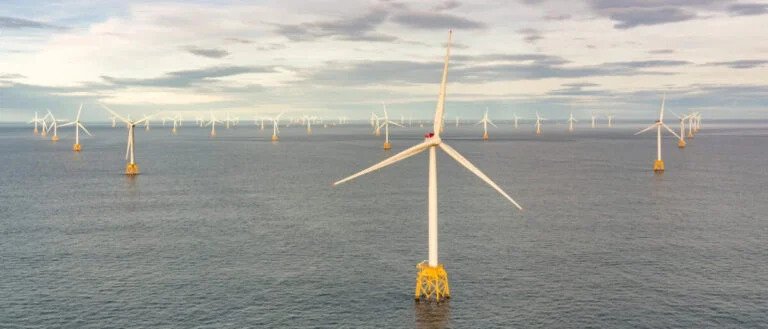Google Signs Power Purchase Agreement for Offshore Wind Project in the Netherlands
Google has recently entered into a power purchase agreement (PPA) with Copenhagen Infrastructure Partners (CIP) in Denmark for 250 MW of energy capacity at the Zeevonk offshore wind project in the Netherlands.
As part of the agreement, Google will procure 250 MW of wind power from the Zeevonk project to sustain its Dutch operations for a period of 15 years.
Adam Elman, Director of Sustainability EMEA at Google, expressed his satisfaction with the collaboration, stating, “Google partnered with CIP ahead of the government tender for this subsidy-free, GW-scale project. We are proud of the outcome and close collaboration with CIP. The Zeevonk project is designed with system integration at heart and combines offshore wind, floating solar, and green hydrogen.”
Elman further added, “The partnership with CIP will bring new carbon-free energy to the Dutch grid and power our operations in the country that provide digital tools, artificial intelligence, and related services around the world. Together with the existing power purchase agreements we have previously signed in the Netherlands, this agreement is a major milestone towards our ambition to operate on 24/7 Carbon Free Energy (CFE), everywhere we operate, by 2030.”
The Zeevonk project, a collaboration between Vattenfall and CIP, integrates offshore wind, solar energy, and green hydrogen on a large scale. The project includes the IJmuiden Ver Beta offshore wind farm and a floating offshore solar farm with significant capacity, located off the west coast of the Netherlands.
The upcoming floating solar farm at IJmuiden Ver Beta will have a capacity ten times greater than the initial project at Hollandse Kust West Site VII. The electricity generated by the offshore wind and solar farm will be converted into green hydrogen at a substantial electrolyzer plant in the Rotterdam Port.
With a planned capacity of 1 GW, the electrolyzer plant will be situated near the offshore wind farm connection point on land, eliminating the need for electricity to pass through the national power grid initially, thereby easing pressure on the grid.
The Zeevonk project, set to operate without subsidies, is projected to be operational by 2029, marking a significant step towards sustainable energy generation and carbon neutrality in the region.

